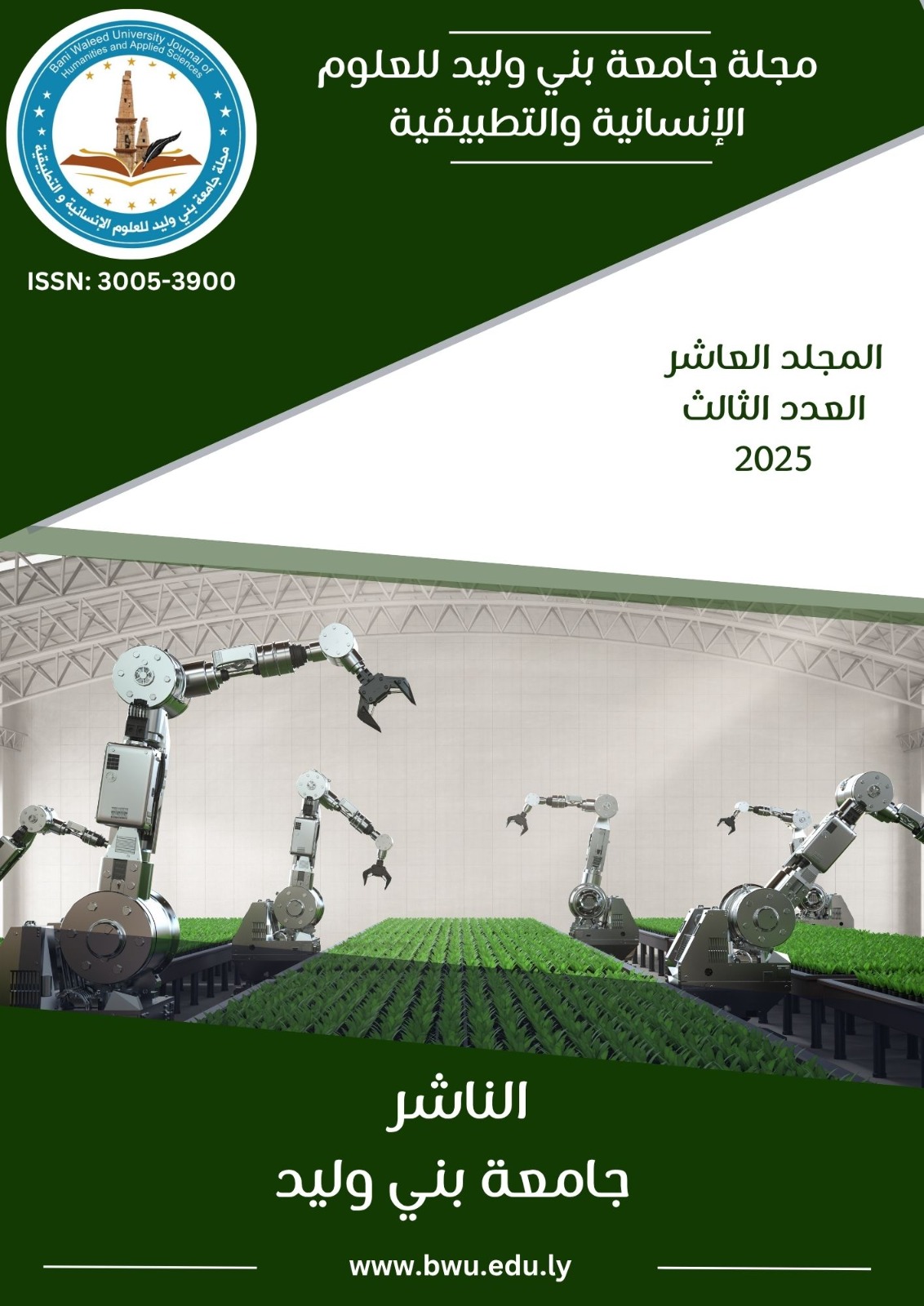French Foreign Policy towards the Maghreb: Analysis and Challenges
DOI:
https://doi.org/10.58916/jhas.v10i3.851Keywords:
Foreign policy, determinants, the Maghreb, the international system, FranceAbstract
This study aims to analyze French foreign policy, considered one of the most complex in the international system, given its ability to adapt and endure despite the rapid transformations witnessed by the world, both during and after the Cold War. This policy is based on a set of intrinsic criteria that guide France's foreign choices and define its roles on the international stage. One of the most prominent institutional features is the strengthening of the powers of the President of the Republic within the framework of the Fifth Republic, who is granted a pivotal role in formulating and implementing foreign policy. The concepts of independence and sovereignty constitute a fundamental pillar of French political discourse, based on a historical legacy that seeks to restore France's global standing. However, this ambition often clashes with a contradiction between available capabilities and the desired international standing, prompting France to pursue a pragmatic foreign policy based on balancing objectives and capabilities. In this context, historical and cultural dimensions play an important role in guiding French foreign policy, particularly through adherence to the dissemination of French values derived from the principles of the French Revolution, such as human rights and freedom, and confronting competing cultural models. French policy is also influenced by a number of economic, military, and strategic factors, through which France seeks to strengthen its global presence, particularly in its traditional areas of influence, such as the Maghreb, which is a historical and geographical extension of its vital sphere. Thus, this study reveals a blend of historical ambition and political realism that characterizes French foreign policy, and a continued effort to maintain an effective position in the international system, despite the challenges resulting from the shifting global balance of power.
Downloads
References
- أمین الباز، منیر بسكري، مكانة المغرب العربي في السیاسة الخارجیة الفرنسیة، ط 1، الإسكندرية: مكتبة الوفاء القانونية، 2014.
- أمينة بو بصلة، تدخل حلف شمال الأطلسي في الأزمة الليبية التأثير الإقليمي والدولي - السياسة العالمية، المجلد ،4 العدد (03) 2019.
- بلال جميل عبد الفتاح الكفاوين، السياسة الخارجية الفرنسية تجاه دول المغرب العربي: ليبيا والجزائر – دراسة حالة 2010 2021 ، رسالة دكتوراه غير منشورة، جامعة مؤتة، الأردن 2022 .
- بوقراص رقية، الفرانكوفونية في السياسة الخارجية الفرنسية، رسالة ماجستير غير منشورة، كلية العلوم السياسية والاعلام، جامعة الجزائر، 2009.
- بيرم فاطمة، أبعاد السياسة الخارجية الفرنسية تجاه المغرب العربي بعد الحرب الباردة، رسالة ماجستير غير، كلية الحقوق، قسم العلوم السياسية، جامعة لخضر، باتنة، الجزائر، 2012.
- بيرم فاطمة، دور فرنسا في النظام الدولي في ظل المتغيرات الدولية لفترة ما بعد الحرب الباردة، أطروحة دكتوراه غير منشورة، كلية الحقوق والعلوم السياسية، جامعة باتنة، 2018.
- حلوى خيرة، السياسة الخارجية الفرنسية تجاه الحركات الاسلامية في المغرب العربي، أطروحة دكتوراه غير منشورة، كلية العلوم السياسية والعلاقات الدولية، جامعة باتنة، الجزائر.
- حمزة عبدالحفيظ مسلم المجالي، السياسة الخارجية الفرنسية تجاه المنطقة العربية (2011 – 2016)، أطروحة دكتوراه غير منشورة، كلية الدراسات العليا، جامعة مؤتة، 2017.
- خديجة فلاح، السياسة الخارجية الفرنسية تجاه منطقة الساحل، رسالة ماجستير غير منشورة، كلية الحقوق والعلوم السياسية، قسم العلوم السياسية، جامعة العربي بن مهيدي، الجزائر 2015.
- رابح زغواني، تفسير السياسة الخارجية الفرنسية تجاه العراق منذ حرب الخليج الثانية: فحص للمقتربات النظرية، رسالة ماجستير غير منشورة كلية الحقوق والعلوم السياسية، جامعة الحاج لخضر، باتنة الجزائر، 2008.
- رانيا حسين عبد الرحمن حسين، السياسة الفرنسية تجاه أفريقيا بعد الحرب الباردة، رسالة ماجستير غير منشورة، معهد البحوث والدراسات الأفريقية، قسم السياسة والاقتصاد، جامعة القاهرة , 2004.
- شارل غوسلان، الفرانكوفونية العربية، ترجمة جيهان عيوفي، ط 1، المجلس الأعلى للثقافة، القاهرة ،2015.
- كتاب زهية، الشراكة الاورومتوسطیة أبعادها ورهاناتها، أطروحة دكتوراه غير منشورة، كلية الحقوق والعلوم السياسية، جامعة عبد الحميد بن باديس، مستغانم، الجزائر.
- مريم مولاهم، السياسة المتوسطية الفرنسية (التطور، الأبعاد، الإستراتيجيات)، رسالة ماجستير غير منشورة، كلية الحقوق، قسم العلوم السياسية، جامعة الحاج لخضر، باتنة، الجزائر، 2010.
- ناصر بوعلام، التحديات الامنية والتفاعلات الجيوسياسية في غرب المتوسط والساحل الافريقي وتداعياتها على الامن الاقليمي للجزائر (2001 – 2022)، أطروحة دكتوراه غير منشورة، كلية العلوم السياسية والعلاقات الدولية قسم الدراسات الدولية، جامعة الجزائر، 2022.









